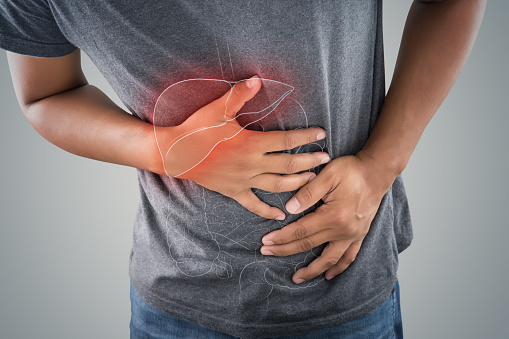Stomach cancer: cancer of the digestive system
Stomach cancer, also known as gastric cancer, is a type of cancer that affects the digestive system. It is the fifth most common cancer globally and the third leading cause of cancer-related deaths. Risk factors associated with this condition include a family history of the disease, certain infections such as Helicobacter pylori, smoking, heavy alcohol consumption, a diet high in salted or smoked foods, and obesity; people who have a history of stomach polyps, chronic gastritis, or pernicious anemia are also at an increased risk. Symptoms can be non-specific and may include abdominal pain, nausea, vomiting, a feeling of fullness, and unintentional weight loss; as the disease progresses other symptoms such as blood in the stool, difficulty swallowing and fatigue may occur. Diagnosis involves imaging tests such as CT scans or MRIs and biopsy results will determine the stage of cancer. Treatment options may include surgery (sometimes involving removing part or all of the stomach), radiation therapy, chemotherapy, and targeted therapy; it depends on several factors such as the stage and location of the disease, the patient's age, and overall health. The five-year survival rate for those diagnosed early before it spreads to other parts is about 90%, however, if it has already spread to other organs then it drops to about 5%. Prevention includes living a healthy lifestyle with no tobacco use or heavy drinking intake and eating a diet high in fruits and vegetables; treating any digestive problems like Helicobacter pylori infection is also important.



0 Comments
Hello there,
Thank you for reaching out to us! We're thrilled to hear from you and would love to send you an awesome reply. Your message is important to us, and we promise to respond as soon as we can.
In the meantime, feel free to explore our website and discover all the exciting things we have to offer. If you have any specific questions or requests, don't hesitate to share them with us – we're here to help!
Once again, thank you for contacting us. We'll be in touch soon with an amazing reply that will surely brighten your day.
Best regards,
[AJAY SHARMA /knowledgesphere.org.in]